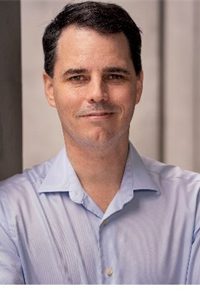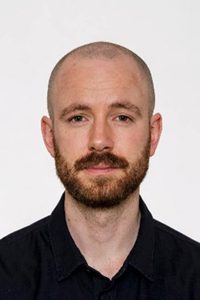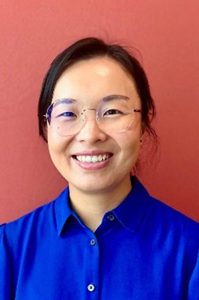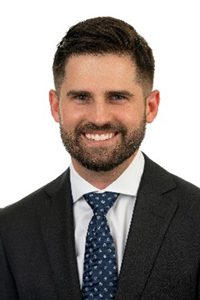Research is critical to advancing healthcare. A key goal in the Metro North Research Strategy is to find ways to support researchers to continue their work to find new ways to treat, diagnose and prevent serious health conditions.
The Fellowship program is specifically designed to allow our most promising clinicians to develop and advance a body of research aligned to the Research Strategy to create a strong foundation of evidence-based healthcare through research. Since 2019, twenty-four Fellowships have been awarded across a wide range of fields and addressing a wide array of topics. More about our current Fellows, can be read here.
We are extremely pleased to announce our Metro North Health Clinician Research Fellowship recipients for 2024. We congratulate the following new Fellows:
Dr Stephen Parker (Early Psychosis, TPCH & Metro North Mental Health)
 SURE-STEP: Substance Use Recovery: Supporting Transition into remission in Early Psychosis
SURE-STEP: Substance Use Recovery: Supporting Transition into remission in Early Psychosis
Stephen’s program of research will seek to improve the outcomes of people experiencing the First Episode of Psychosis (FEP) and concurrent substance use issues. It will comprise three interrelated projects:
SUNRISE (Substance Use Needs: Revealing Unmet Issues in First Episode Psychosis)
A validated substance use assessment measure will be used to identify the extent to which substance use issues are identified as part of routine FEP clinical assessment and care.
OCUS-FEP (Facilitating Open Communication on Substance Use in First Episode Psychosis: Consumer and Staff Perspectives)
The SUNRISE findings will be used as a basis from which to engage stakeholders (including consumers, clinicians, and lived-experience workers) to explore facilitators and barriers to identifying, disclosing, and treating substance issues using individual interviews.
Collaborative Development, Implementation and Evaluation of a Focused Care Pathway
SUNRISE and FOCUS-FEP will provide contextual knowledge to inform the collaborative development of a dedicated care pathway
supporting people experiencing FEP and concurrent substance use. The Metro North Co-Design Framework will inform the process, which will
include developing evaluation and  data collection processes. This pathway will enable future research, including the capacity for the leadership of pragmatic clinical trials.
data collection processes. This pathway will enable future research, including the capacity for the leadership of pragmatic clinical trials.
Dr Eoin O’Sullivan (Nephrology, RBWH)
Cellular Senescence: Precision Medicine for Chronic Kidney Disease
The central experimental pillar of Eoin’s program exploits cutting edge single cell transcriptomic techniques to study and discover new ways to fight Chronic Kidney Disease (CKD) and bridge the gap from bench to beside. He intends to study recently discovered senescent cells as potential biomarkers and novel therapeutic targets in CKD. The goal is to develop a precision medicine approach for people living with CKD, to understand their individual senescent cell burden and transcriptome, find new treatments, and provide high quality clinical decisions while minimising invasive testing such as kidney biopsies. Importantly this work aims to pave the way for therapeutic development and early phase clinical trials within Metro North. Through strategic collaboration, this Fellowship aims to leverage existing project infrastructure and expertise to build a network of translationally focused researchers across Metro North.
 Dr Ashleigh Scott (Haematology and Bone Marrow Transplant, RBWH)
Dr Ashleigh Scott (Haematology and Bone Marrow Transplant, RBWH)
Implementing molecular imaging and microbial biomarkers to deliver precision medicine in cancer immunotherapy.
Ashleigh’s research aims to better understand immunotherapies in order to deliver them more precisely and safely to our patients. The program will evaluate a comprehensive predictive gastrointestinal graft versus host disease (GI-GVHD) biomarker panel, comprising molecular imaging and multiomics analyses, for integration into clinical practice. He and his collaborators will conduct a prospective observational clinical study utilising FDG-PET assessment of GI tract glucose uptake, with concurrent faecal microbial metagenomic and metabolomic assessment, and GI tissue analyses. The broader aim is to build capacity for Metro North and the impending Queensland Cancer Centre to routinely provide access to novel PET diagnostics and theranostics for our patients.
Dr Monica Ng (Nephrology, RBWH)
Revolutionising precision medicine for kidney diseases in the age of nanotechnology, big data and targeted therapies.
 Monica’s program will translate recent advances in nanotechnology, big data analyses and targeted therapies to the clinic to provide novel diagnostic and therapeutic tools for precision medicine in chronic kidney disease. Specifically, the program will look to use interwoven basic science, epidemiological and clinical trial methodologies to achieve the following objectives:
Monica’s program will translate recent advances in nanotechnology, big data analyses and targeted therapies to the clinic to provide novel diagnostic and therapeutic tools for precision medicine in chronic kidney disease. Specifically, the program will look to use interwoven basic science, epidemiological and clinical trial methodologies to achieve the following objectives:
1. Develop a world-first nanoparticle-based non-invasive diagnostic test to measure kidney scarring (irreversible injury) using state-of-the-art omics technologies and validate the test in international multicentre cohorts.
2. Test tacrolimus monitoring strategies for individualised medication dosing using cutting edge blood sampling procedures that can be completed by patients at home.
3. Evaluate strategies for immunosuppressive medications after kidney transplant failure using binational survey and data linkage analyses.
4. Test targeted therapies for glomerular diseases using multi-centre clinical trials to arm kidney specialists with novel disease modifying therapies.
Aligning with Queensland Health’s Advancing Kidney Care 2026 Plan, this proposal will improve specialist kidney care and address barriers to equitable outcomes particularly for rural/regional/remote Queenslanders.
Congratulations to our four recipients for 2024. We’re looking forward to seeing the progress of these research projects over the coming years.
 Dr Ashleigh Scott (Haematology and Bone Marrow Transplant, RBWH)
Dr Ashleigh Scott (Haematology and Bone Marrow Transplant, RBWH)